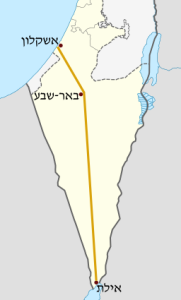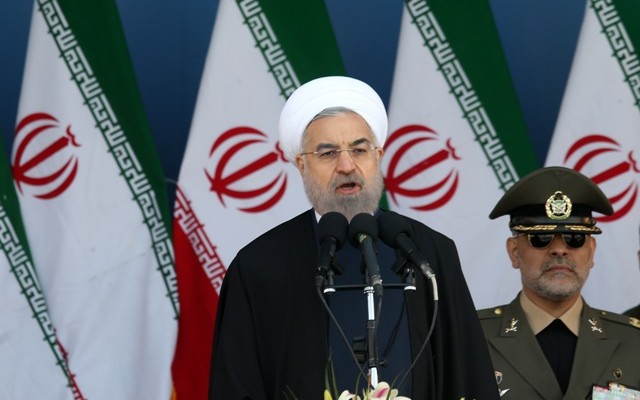
The Eilat-Ashkelon pipeline. (Wikipedia/Israel_location_map)
In 1979, Iran declared Israel an enemy and severed all business ties. Now, a Swiss court has ruled that Israel must compensate Iran for its half of a joint oil production program that existed before the Islamic revolution.
By: Lauren Calin, World Israel News
A Swiss court has ordered an Israeli company to pay Iran $1.1 billion in compensation for taking over the Iranian share of a business partnership that was cancelled by Iran following the Islamic Revolution.
Israel rejected the court’s ruling. Israel’s Finance Ministry indicated that the money would not be paid as it is a violation of Israeli law to transfer funds to an enemy state. The ministry issued a statement, saying: “Without relating to the heart of the matter, we point out that according to the Law for Trading with the Enemy it is prohibited to transfer money to an enemy country including the Iranian National Oil Company.”
The Eilat Ashkelon Pipeline Company (EAPC) was established in 1968 as a joint partnership between Israeli fuel companies and the Israeli and Iranian governments. Iran cancelled its contract in 1979 following the Islamic Revolution. In response, Israel expropriated Iran’s share.
Iran launched three lawsuits in Swiss and French courts in order to claim a share of the profits to which it would have been entitled, compensation for expropriated property and payment for crude oil that was delivered to Israel, but not paid for at the time of the Revolution. According to IRNA, the official Iranian news agency, this specific judgment deals with the matter of the crude oil.
Israel argues that Iran is not entitled to compensation due to having been the party to violate the partnership agreement. Israel and Iran maintained close business ties under the Shah, but the Islamic Republic rescinded Iran’s recognition of Israel and ended all diplomatic relations. Ayatollah Khomeini declared Israel an “enemy of Islam” and the “little Satan.” Since the revolution, it has been Iranian government policy to call for the destruction of Israel and to fund its enemies, especially the Hezbollah and Hamas terror organizations.
The legal intricacies of the case are complicated by the fact that the lawsuits were launched in 2004, whereas Israel only officially declared Iran an enemy state in 2011. Furthermore, Iran did not sue EAPC directly, but rather Trans-Asiatic Oil (TAO), which is owned by EAPC but registered in Panama.





